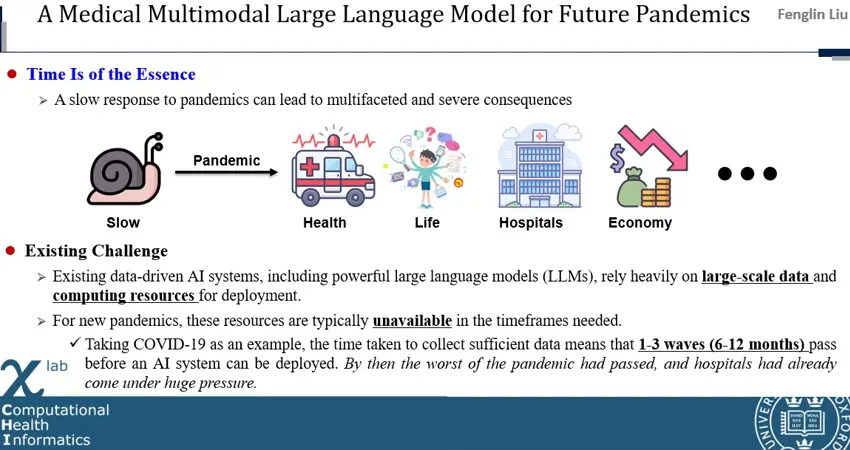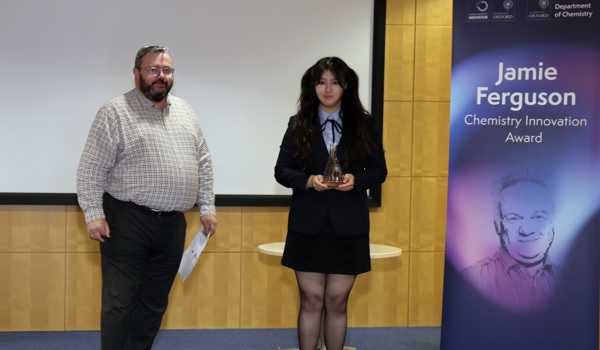27 Nov 2024
DPhil student Fenglin Liu wins IET William James Award for Biomedical Engineering
Research work explores how algorithms can use data from analogous diseases to prepare analysis tools for deployment in new pandemics

Engineering DPhil Student Fenglin Liu has been announced as this year's winner of a prestigious Institution of Engineering and Technology (IET) Healthcare Technologies Award for early-career researchers.
His research work, titled 'A Medical Multimodal Large Language Model for Future Pandemics,' was awarded the 2024 IET William James Award, awarded annually to one distinguished PhD student in the field of Biomedical Engineering across the UK and abroad. The William James Award is presented to encourage, support and recognise the outstanding work of PhD or EngD students who demonstrate a high level of commitment and advanced understanding of Biomedical Engineering.
Fenglin Liu is supervised by Professor David A. Clifton, Royal Academy of Engineering Chair of Clinical Machine Learning. Fenglin’s research interests include Clinical AI and Digital Health and his DPhil focuses on exploring algorithmic development using data from analogous, but different, diseases from the very large repositories of data available, so that tools can be ready to deploy within 1-2 weeks of encountering a new pandemic.
Existing Artificial Intelligence (AI) systems needed to help provide evidence-based medical recommendations rely heavily on a large number of computing resources, which are expensive, time-consuming, and energy-intensive. During new pandemics, sufficient resources are typically unavailable. Taking COVID-19 as an example, the time taken to collect sufficient data meant that 1-3 waves (6-12 months) could pass before AI systems were ready to be deployed.
Since the COVID-19 pandemic, monkeypox (or Mpox) and a new variant of bird influenza have emerged. Fenglin’s project outlines an effective AI system that could be ready for deployment within 1-2 weeks, rather than months, presenting a quick response to combat future pandemics. The system adopts the most advanced large language model technology, as in existing ChatGPT, to learn broad medical knowledge from publicly available medical data. The system is the first of its kind to deliver evidence-based medical recommendations in a data-efficient, parameter-efficient, and compute-efficient way.
It could also be particularly useful for resource-constrained regions and rare diseases as it can be easily implemented in hospitals with limited resources to support clinical tasks involving any type of medical data, such as recommending appropriate medications for patients, identifying potential adverse reactions, and alerting clinicians to possible drug interactions.
Fenglin says, “This is a great honour and a wonderful recognition of the work in healthcare technologies that our Computational Health Informatics (CHI) lab is doing. I am truly grateful for Professor Clifton’s guidance and look forward to producing more valuable research!”
Fenglin’s work in the CHI lab promises to significantly impact the application of AI in healthcare. The project has already been featured in The Guardian newspaper, led to Fenglin being a finalist in the highly competitive STEM for Britain 2024 competition at the UK Houses of Parliament, and won the Best Poster Award at the Multimodal AI Workshop 2023 held by the Alan Turing Institute.
The IET Healthcare Technologies awards will be presented at the IET London: Savoy Place, in a special ceremony on 28 November 2024. Fenglin has been invited to speak as part of the Annual Healthcare Lecture, to expand on his work.




